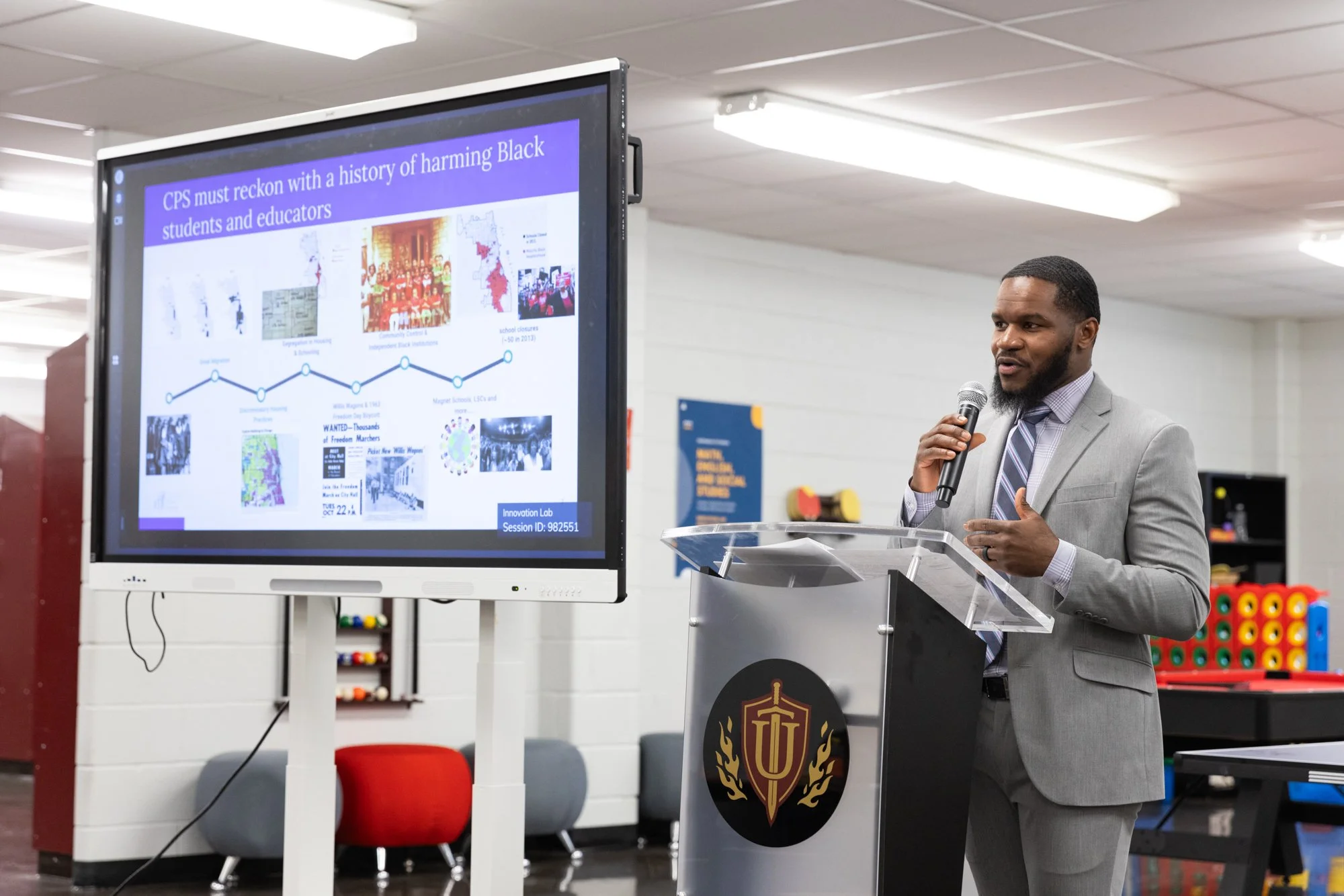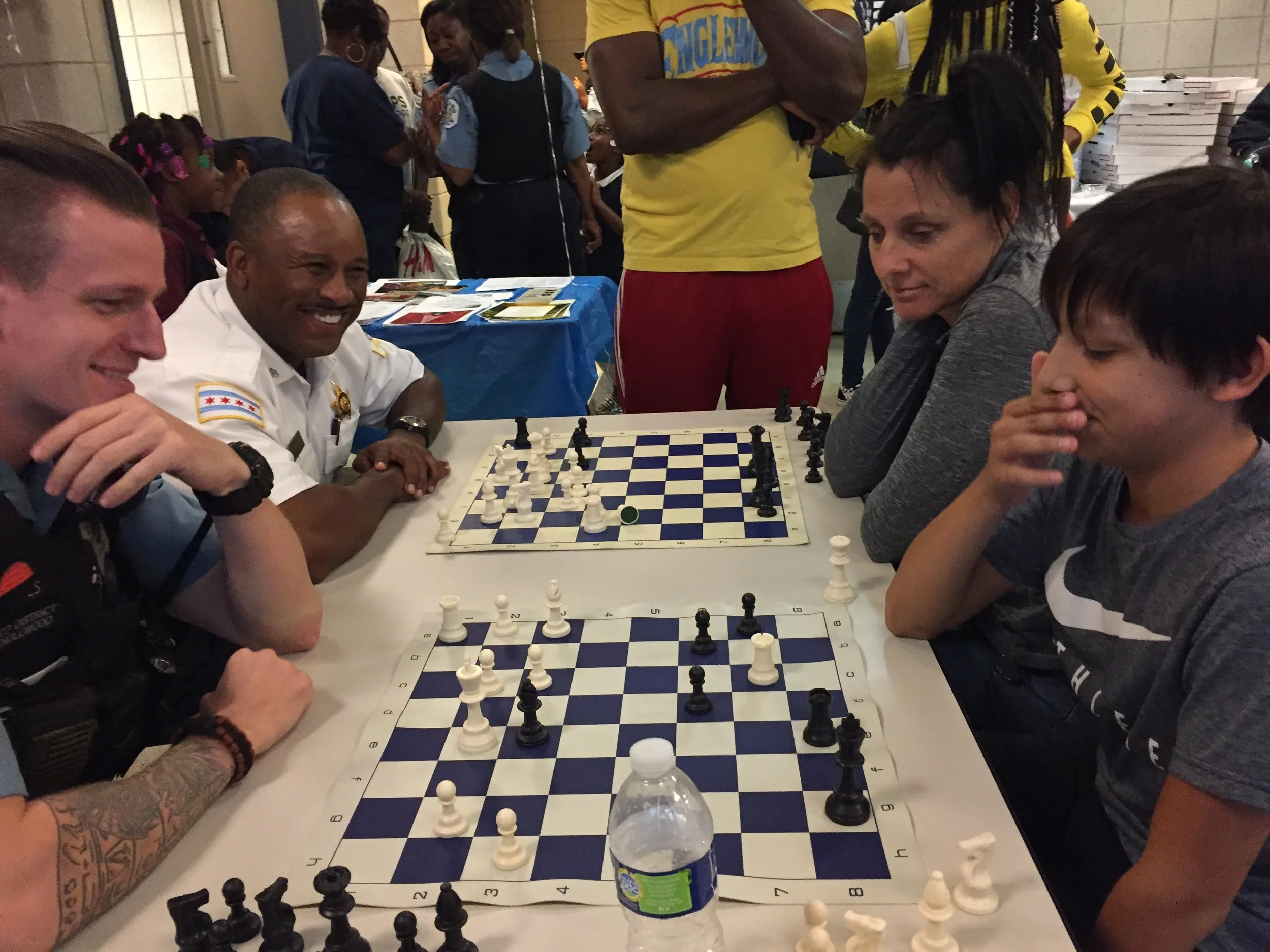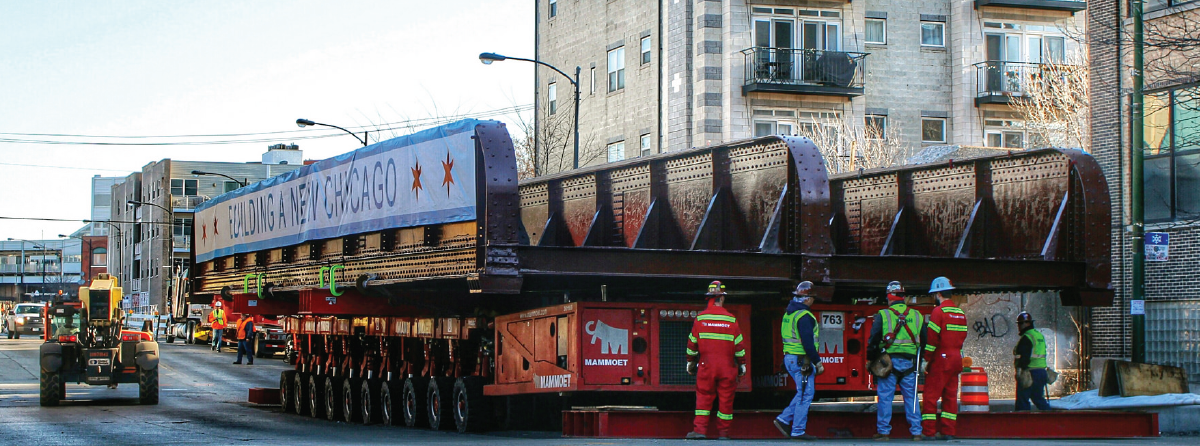
Projects
CPS Black Student Success Working Group
While Chicago Public Schools (CPS) has made efforts to address long-standing racial inequities in education, Black students continue to suffer from historic and persistent gaps in educational opportunities and outcomes. To address these systemic inequities that have stood in the way of Black student achievement, CPS committed to co-create a Black Student Success Plan alongside key community stakeholders.
Cut the Tape to Speed Up the City’s Real Estate Approval Process
The City of Chicago’s current real estate development approval process, while well-intentioned, can involve a dozen departments and results in a burdensome and costly undertaking. The complex system also favors those with more time and money to navigate the lengthy planning and entitlements process, including the legal work necessary to obtain approvals.
Operationalizing Community Policing
Community policing is a philosophy that emphasizes collaboration between police and the community to build trust and solve problems. The Chicago Police Department's (CPD) consent decree mandates that every CPD member – sworn officers and civilians – be responsible for making community policing a core component of its programs, training, resource deployment, and accountability systems.
CPD Workforce Allocation Study Scope
It is imperative that CPD accomplish the changes the Consent Decree requires while maintaining the day-to-day operations that ensure public safety. Both priorities require careful planning of workforce allocation for how officers are deployed.
911 Alternate Response Strategy
The field of alternate response has matured significantly over the past few years, particularly within the context of a nationwide push to reimagine public safety. A recent report found that the majority of Chicago’s 911 calls are related to non-urgent matters like car accidents, mental or physical health issues, or noise complaints.
Chicago’s Mental Health Alternate Response Expansion
Chicago’s Crisis Assistance Response and Engagement (CARE) program responds to 911 calls involving individuals experiencing a mental health or substance use-related crisis. The City has continued to scale up operations since the first on-the-ground team was launched in September 2021. Early in his tenure, Mayor Brandon Johnson committed to expanding the CARE program for two reasons: alternate response directly supports his “Treatment Not Trauma” policy priority, and the work is an element of his “People’s Plan for Community Safety.”
Chicago’s People’s Plan for Community Safety
Violence in Chicago is a complex issue that is a symptom of underlying challenges of systemic racism, poverty, and social disinvestment. Shootings and homicides recorded in Chicago fell by 13% in 2023 as violence rates returned to pre-pandemic levels, but the number of people killed last year was still among the city’s highest over the past two decades. Communities also continue to suffer harm that extends beyond violence and disparately affects Chicago’s West and South Side neighborhoods.
Community Violence Intervention Public-Private One Table
Community Violence Intervention (CVI) uses multidisciplinary strategies to engage individuals and groups to prevent and disrupt cycles of violence and retaliation. It establishes relationships between individuals and community assets to deliver services that save lives, address trauma, provide opportunity, and improve physical, social, and economic conditions to prevent violence.
CPD & CVI Professional Understanding
Starting in 2020, the City of Chicago, Cook County, and the State of Illinois significantly increased investment in community violence intervention (CVI) services in Chicago – including street outreach – as part of a holistic and community-driven approach to violence reduction. As street outreach teams respond to more incidents, there is a need for clarity on roles and protocols between the Chicago Police Department (CPD) and CVI providers.
Chicago’s Mental Health Expansion Working Group
In September 2023, the Chicago City Council passed an ordinance creating the Treatment Not Trauma Working Group of internal stakeholders. The ordinance required a report with recommendations for expanding non-police alternate crisis response programs and clinical services while increasing community awareness of both.
Envisioning Health Hubs for Chicago
The Chicago Department of Public Health (CDPH) is organized to provide guidance, services, and strategies that make Chicago a healthier and safer city. However, the pandemic and demand for adding City-run mental health clinics have pushed the agency to increase the types of direct services provided to the public
Adult Learner Engagement Model for City Colleges
City Colleges of Chicago (CCC) is committed to serving adult learners aged 25 or older, or ages 18-24 with adult responsibilities such as parenthood, full-time work, or military service. The 2021 - 2025 Strategic Framework includes a vision to be recognized as the city’s most accessible higher education engine of socioeconomic mobility and racial equity.
Chicago Public Library Resource Analysis
The Chicago Public Library (CPL) serves all Chicagoans with free and open places to gather, learn, connect, read, and be transformed. With 81 locations across all 77 community areas, CPL branches provide free resources and act as anchor institutions that can respond to community needs.
Chicago Public Library Strategic Plan Prep
Chicago Public Library (CPL) celebrated its 150th anniversary in 2023 and continues to evolve as a resource for Chicagoans. In recent years, CPL underwent several changes, including a new leadership team, a post-pandemic shift in how people use the library, and key planning efforts, including an equity and capital plan. CPL’s current strategic plan concludes in 2024.
CPS Strategic Plan
In September 2023, the Chicago Board of Education announced the launch of CPS’ next Five-Year Strategic Plan. The Strategic Plan will use components of the existing CPS Three-Year Blueprint, which was supported by Civic Consulting Alliance and pro bono partner Slalom.
CPS Arts Education Plan
Chicago Public Schools’ (CPS) groundbreaking citywide Arts Plan, launched in 2012, yielded tangible results, including robust arts partnerships, and recommendations around instructional minutes. In a post-COVID world, student needs have changed dramatically, putting CPS at a critical point in time to build upon the success of the previous plan while identifying opportunities to improve and expand the arts education experience and address current challenges.
City Colleges Staff Capacity Building
Supporting staff development is a key priority for City Colleges of Chicago (CCC) leadership team. Staff have a range of skill sets and are tasked with creating engaging and informative presentations, managing student data, and generating comprehensive reports.
Garfield Park Rite to Wellness Collaborative Legal Support
The Garfield Park Rite to Wellness Collaborative (GPRWC) is a coalition of residents, faith-based organizations, healthcare institutions, nonprofits, and other stakeholders in Chicago's West Garfield Park community. The group was formally established in 2021 to develop a unified strategy to address the significant disparities in health outcomes in the area, where residents live thirteen years less on average compared to people just a few miles away.
West Side United Food Access Strategy
In 2017, Civic Consulting Alliance provided foundational support to bring together a collaborative of healthcare providers to build West Side United (WSU), an organization committed to eradicating the 16-year life expectancy gap between residents on Chicago’s West Side and the Loop. One of WSU’s primary strategies is to address the social determinants of health by removing barriers to accessing healthy food.
City Workforce Strategy Alignment
Meaningful employment and career opportunities are foundational to the Johnson Administration’s ambition to invest in and create pathways to wealth for marginalized populations and underserved communities. While the private sector is responsible for most of the employment base, the City of Chicago government plays a multi-faceted role in the workforce space through the resources deployed by its Departments and Sister Agencies, policy activities, and the power of its influence.




















